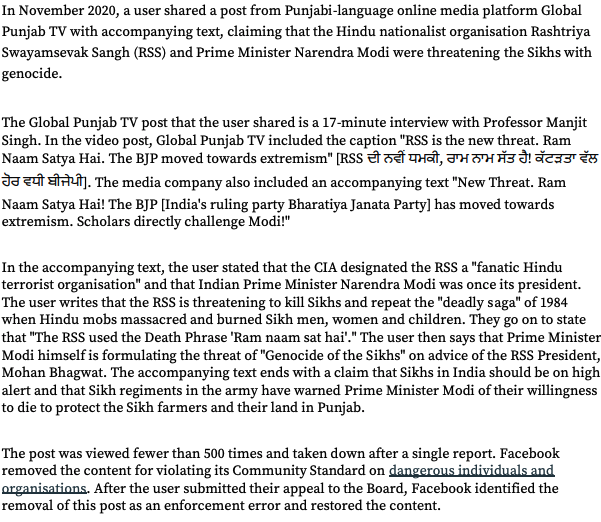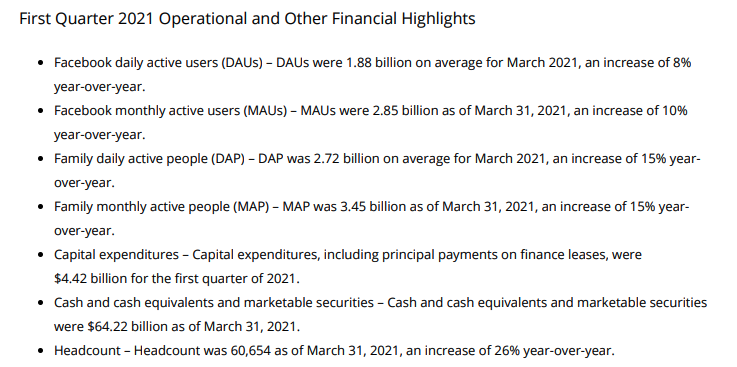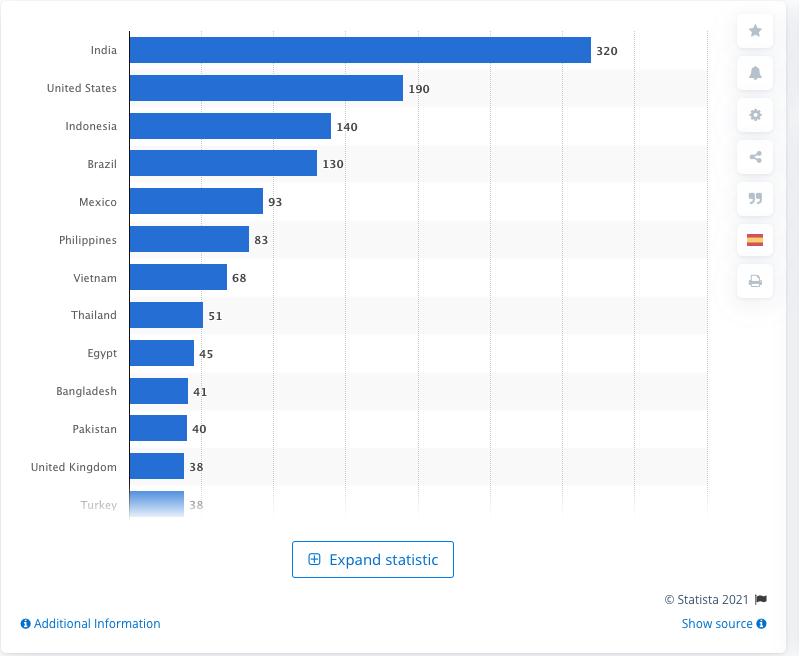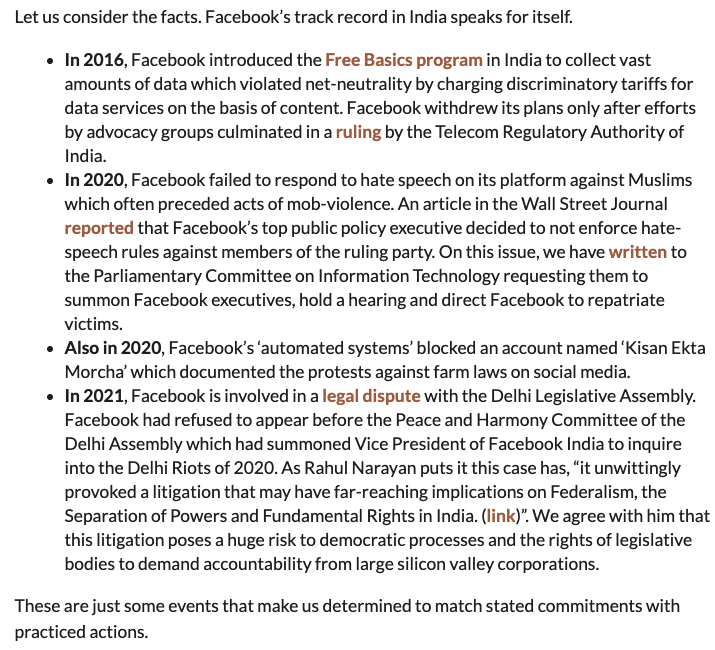In some convenient timing the Facebook oversight board has released a decision relating to the BJP ordering it to restore a post. Let us look at it in context. Link to the decision below. 1/n oversightboard.com/decision/FB-H6… 

Yesterday on April 28 two significant events occurred with respect to Facebook and India. First, it announced it’s 2021 first quarter results. Their note by the CFO is almost gushing on the numbers. (Source: Facebook, April 28) 2/n 

Out of the, Daily Active Users ("DAU"), Indians constitute the largest number. This number is close to 320 million users in India. 3/n (Source: Statista) 

Now imagine, given the number of users in India and it's priority for Facebook as a market, does it find mention in any regulatory penalties or risks, till date? There are only 4 relevant references to, "India" in their 2020 SEC filing. 4/n d18rn0p25nwr6d.cloudfront.net/CIK-0001326801…
The only reference which indicates *any* regulatory risk is a pending litigation in the Supreme Court. Notice how they term it may impact, "our ability to target ads". (Disclosure : IFF is an intervenor in this case). 5/n 

Now, let us look at why, we in India should *not* take any actions by Facebook on face value. It's past conduct simply does not inspire confidence. (Source : IFF's Analysis) 6/n
internetfreedom.in/facebook-human…
internetfreedom.in/facebook-human…

Why do these actions appearing jarring? FB's reaction to hate speech in the United States seem to be very different. Just look at how it approached a civil rights audit. With high level statements & transparency. In India, nothing. Silence. 7/n facebook.com/business/news/…
Facebook's response to yesterday's, "accidental" censorship on, #ResignModi is not documented on its "newsroom". This will not be documented by it. Even the justification provided was vague and evasive only after press pickup. Go ahead look. 8/n about.fb.com/news/
Now, commentators will distinguish the oversight board from FB itself. But please consider why people in India should have low trust in FB based on financial filings, past conduct & discriminatory behaviour. India is just a market to exploit for revenue maximisation for FB. 9/9
• • •
Missing some Tweet in this thread? You can try to
force a refresh





